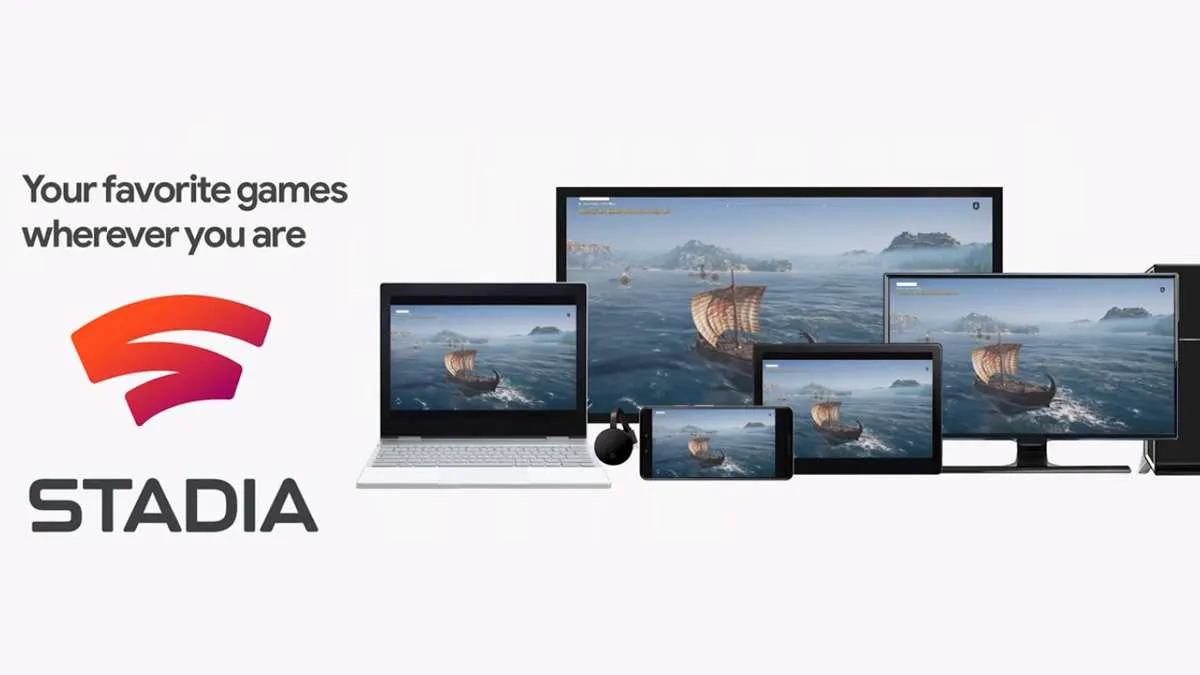
In early 2019, Google promised to bring its revolutionary, innovative genius to a new sector: gaming. The Stadia was announced as a seamless cloud streaming service. Why buy a gaming console if you can game without an Xbox One or PS4?
Nobody really knew what to expect. Google has been a powerhouse in progress and innovation. But they also have a long list of product failures and half-made ideas. And when the Stadia service launched in November 2019, already low expectations were still unmet. Except for a collection of Google superfans, gamers were unimpressed. Some, like myself, saw it coming. I even wrote an article about my certainty Google Stadia would fall flat on its face. Here’s a reflection on each of those points.
1. America’s Internet
The United States has a dated, struggling internet infrastructure. The majority of the US barely has enough connection to stream Netflix or play games reliably online, let alone stream 1080p multiplayer without local hardware to do most of the work. And a good chunk of the places where the internet is fast enough has that speed locked behind expensive monthly packages and data caps.
You’re already advertising to a limited market with the Stadia, so limiting it even further isn’t smart. And when you consider how much of rural America still uses broadband and even dialup, the customers evaporate even further. Who wants to stream a single-player game when they can reliably play it from a console in their living room?
2. Streaming multiplayer
Streaming a single-player game is already a fairly lame idea for a lot of gamers, so asking the same thing of multiplayer games is even worse. Every player in a match of Destiny or Overwatch is hosted on the same map. If one player has bad internet, that can ruin the experience for everyone. The Stadia already has delays for the individual. Multiply that by every player in the match and it becomes a messy lag fest that guarantees a win for the lucky guy who has Google Fiber. No, thank you.
3. Developer confidence
I can’t see any developers wanting to focus on the Stadia as a core platform. Consoles already deliver incredible experiences. And if you have the money, high-end gaming PCs can even outperform that. That’s the whole market, really.
Studios often make games with consoles as a baseline and PC as an upgraded version of that. Stadia is below the console standard on most internet connections. And with the next generation of consoles on the horizon, what I said before resonates even more.
I’m not even sure if Google itself has confidence in Stadia. And if they don’t, why would any developer? No studio is going to work to adapt their hit title for a dead-in-the-water platform. Even Skyrim, which has been released on just about every service, wasn’t there on day one.
To be sure, Google has made small strides. In December, they purchased Journey to the Savage Planet developer Typhoon Studios. More recently, they hired the Sony Santa Monica Studio’s former head, Shannon Studstill, to lead a new Google studio based in Playa Vista, California. But it’s too little, too late.
4. Too many side hustles
Google has a love of quantity over quality. And for a conglomerate of their size, it works. Throw up ten ideas. If eight of them fail? Two others make up for the loss. It’s great when we get Gmail or Google Docs, but we also get Google Plus and Google Spaces. To no one’s surprise, Stadia is already in the latter group. Anyone who remembers the end of Google Plus knows what comes next.
Google loves to shut down lackluster side projects. Why keep failing projects around? If Google can’t have a strong market presence, they eventually close shop and move on. That means servers shut down and those cloud games are gone, too. Gamers are ravenous about access to their games. To many gamers, it isn’t worth buying any games on a service they have no confidence will be around in a few years. In an ever more digital world, Microsoft, Sony, and Nintendo have adapted to accommodate access to games. Google can’t do that with a cloud service stored on their end.
5. A solution to what?
Console or PC? That question has defined gaming for over two decades. Google Stadia has no room in that debate. Spotify was a solution to music availability. Hulu and Netflix were solutions to streaming movies and shows.
This is honestly what killed Stadia before the first press reveal was over. We simply do not need it. PC gaming has the highest performance you’ll get. Steam has more games than any keyboard junkie could ever play (and enough sales to fill up game libraries way beyond Stadia’s measly selection).
Sony and Microsoft have stepped up their offerings, too. Xbox Game Pass has dozens of classic games and newer releases for just $10 a month. For the cost of two $60 retail games, you can have those dozens of games at your leisure. Sony has a similar program with PlayStation Now.
Conclusion
Google Stadia was meant to be the next Gmail or Google Maps, setting standards that the competition had to catch up to meet. Instead, we got the other half of the coin. Stadia will join the benches with other disappointments like Google Plus and Google Spaces.
I don’t want to revel in the failure of Stadia. It’s honestly bittersweet. Google has always enjoyed having a finger in every pie of the tech world. The problem is how lackluster they become when those projects are not a high priority for the company.
Google Stadia feels like a concept from a board meeting where someone suggested, “Hey, guys. Google for gaming would be amazing!” But that idea did not factor in a limited market, little consumer interest, and a lack of any need for what was envisioned. Instead of revolutionary progress, we very likely have another Google ugly duckling with a limited lifespan.
Maybe in 10 years, Stadia will be introduced to a different world. And who knows? Maybe it’ll be ready next time. But I think it’ll be just another forgotten idea left to be mourned in the Google graveyard.
